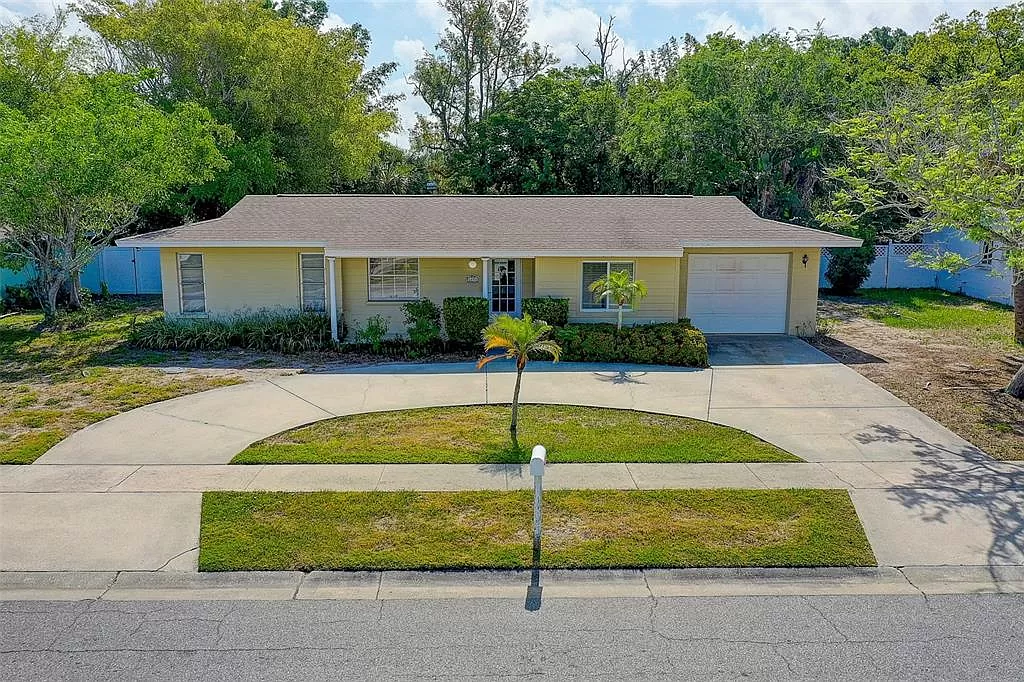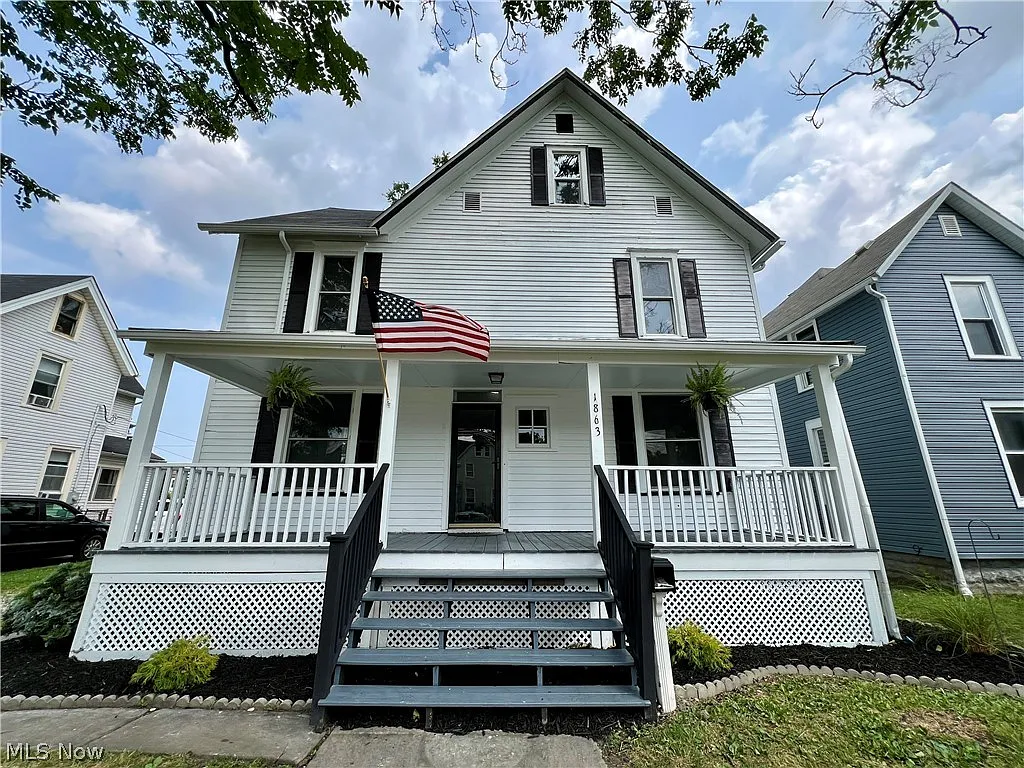Editorial Integrity
Making informed real estate decisions starts with having the right knowledge. At HomeAbroad, we offer US mortgage products for foreign nationals & investors and have a network of 500+ expert HomeAbroad real estate agents to provide the expertise you need. Our content is written by licensed mortgage experts and seasoned real estate agents who share insights from their experience, helping thousands like you. Our strict editorial process ensures you receive reliable and accurate information.
Congratulations, you have been granted a green card and are now a permanent resident of the United States! This is an exciting time in your life, with so many new possibilities ahead. One of the things you may be wondering is if you can buy a house as a green card holder. The good news is that, yes, you can! In this blog post, we will discuss the process of buying a home and getting a mortgage loan in the U.S. as a permanent resident. This guide will provide all the information you need to start the process.
Table of Contents
Can a Green Card Holder Buy a House?
Yes, a green card holder is eligible to buy a house in the U.S. Permanent residents’ access to home loans is even better than that of regular visa holders since there’s no risk that their residency on a visa will be terminated.
If you want to purchase a house in the United States and have a green card, keep reading to discover how to acquire a home in the United States!
How Does a Green Card Work in Buying a House?
A green card indicates that a person is a permanent resident in the United States.
A green card is also commonly known as a Permanent Resident Card. A green card is a United States government document that serves as proof that the holder of a green card has access to work and resides in the country without restriction.
There are various ways through which U.S. and non-US citizens or foreign nationals can start with buying a house; they can even work in the U.S. as a resident.
Nonetheless, obtaining a residence and working lawfully in the U.S. through a green card is an excellent option for most foreign nationals to buy a residential property. Moreover, since it transforms them into permanent residents, working and living in the U.S. is more manageable and less stressful.
The Process of Buying a House on a Green Card
We have laid out the entire process of purchasing a residence on a green card step by step here:
Step 1: Decide on a budget.
Before purchasing a house, it’s essential to understand how you’ll finance the purchase and what kind of mortgage you will take out. Even though the real estate market may throw some unexpected events at you, you can be prepared for them ahead of time. It will benefit you to plan your budget, keeping in mind what kind of house you are looking for.
Choosing the right property according to your needs is necessary. Calculating how much you’ll need to save for a house is essential, including the down payment, mortgage payments, property taxes, and insurance.
The region in which you’re purchasing your house and the location where it is located has a significant role. The cost of any residential property varies based on the prestige or sophistication of the area.
Step 2: Get pre-approval on your mortgage loan.
You probably might take out a mortgage loan, so pre-approval is essential. A pre-approval is granted to you by your mortgage lender after observing and evaluating your financial history, like your employment history, bank statements, monthly and annual expenses, credit report, credit score, etc.
Preapproval is merely a method for you and potential mortgage lenders to understand what portion of a mortgage loan you qualify for. A pre-approval is also helpful in informing the lender about your knowledge of the lending standards as a buyer.
Step 3: Get a real estate agent.
Buying a home in another country can be daunting, which is why getting in touch with a professional in the field is important. Hiring an experienced real estate agent with a CIPS designation can be very helpful, especially for a foreign national buyer. CIPS stands for Certified International Property Specialist, and as the name says, they have expertise in helping foreigners buy property in the US. From finding the right property to executing the buying process flawlessly, a CIPS agent can be a real help to you.
To ease the process of choosing the right real estate agent for you, we at HomeAbroad can lend a helping hand in finding the best suitable CIPS real estate agent for you in the United States!

Find the best real estate agent with international expertise
Connect with a HomeAbroad real estate agent in your area.
Step 4: Start your home search.
The first step you should take while on a house hunt is to zero down on the neighborhood and set your price range. Then, you can walk into open house sales to choose a suitable place for yourself. Suppose you face difficulty in researching the kind of house you want to buy. In that case, you may also converse with your agent about the type of house and location you’re searching for, and he or she can assist you in finding some alternatives that you might ultimately pick from.
When buying a house, don’t forget to ask the seller or your agent questions about the neighborhood. You may make notes on topics such as transportation from your home, nearby schools and shops, shopping malls, kitchen designs in your home, parking spaces, the safety of the neighborhood, and so on.
Prepare a list to ensure that your future home has everything you need to live comfortably.
Step 5: Put down an offer.
The next step in buying your dream home is to put an offer of your choice to the seller with an offer letter. You can also reach out to your real estate professional for assistance in preparing an offer letter to send to the property seller.
The offer letter is a legally enforceable document that reflects your state’s real estate rules. The offer letter generally includes:
- The amount you are willing to pay for the house.
- The down payment amount.
- Your pre-approval status.
In addition, depending on your situation, you may give any other information or negotiations that you believe will set you apart from the other potential purchasers.
Step 6: Ask for a house inspection.
A home inspection is necessary before you move in. In addition, an inspection is useful in discovering any issues with the property.
A certified home inspector inspects the property and its entire structure, including the windows, roof, basement, plumbing, power backup, and electrical system. As a homeowner, you will be expected to schedule and pay for a home inspection, usually with the help of your real estate agent, but it is well worth the expense.
Step 7: Appraisal
A home value appraisal is a process through which a real estate appraiser determines the property’s fair market value.
Appraisals can guarantee both you and your lender that the price you agreed to pay for a house is reasonable. Appraisals are also common in most counties to determine property taxes, making them a must.
Step 8: Secure your mortgage
As a green card holder, the most important thing required to secure a mortgage loan is the Taxpayer Identification Number (ITIN) and your valid Social Security Number (SSN).
To qualify for a mortgage, you need the following:
- A proof of your current employment and paystubs (last 30 days)
- 2 years of bank statements or pay stubs showing salary and income (w-2s and 1099s). Any money earned in a foreign currency or outside of the United States must be converted to U.S. dollars before applying.
- Federal and state income tax returns for the past two years. These documents must be translated into English by a professional translator.
- Photo identification issued by the government
- Green card
- Your two most recent bank statements for both the borrower and co-borrower of all your financial institutions.
Step 9: Closing the deal.
Finally, you’ve reached the point where you can hold your house keys.
Since you plan to live in the U.S., you can directly meet your real estate agent to sign all the final paperwork. Including your mortgage loan documents, any repairs or issues found by your home inspector, and details of the down payment and final closing costs.
How to Get a Green Card Mortgage
Getting a mortgage as a permanent resident of the United States as a green card holder is quite simple because you must have excellent credit in the United States. Getting a mortgage for you is similar to any other U.S. citizen.
Some points to note while getting a mortgage on green card:
- Show your green card to the loan officer.
- Shop for the best mortgage rates and investigate your creditworthiness to demonstrate that you’re a responsible borrower.
- Most lenders have criteria for determining how much interest they will charge you.
With a solid credit rating, a large down payment, and few existing obligations, you’ll get the greatest mortgage rate if you have a high credit score, a big down payment, and no current debts. This is true for both American citizens and foreign nationals.
Documentation Required to Get a Mortgage Home Loan for a Green Card Holder
Since your green card is not the only qualifying document that can get you a mortgage loan, green card holders will also need to provide all the necessary documents to apply for a mortgage loan for permanent residents.
Here are the following documents that you need to submit other than a green card:
- Your ID proof- Identity proof may include your passport, photograph, green card, and address proof in the United States
- Employment authorization document- Last two pay stubs with company name
- If you are self-employed, you need the last two years of tax returns and your business accounts for the same time, certified by an accountant.
- Any assets, if applicable, such as recent statements about your savings, investments, and retirement accounts, should be included. You’ll need papers to show that you own property if that’s the case. You might be required to show the source of any recent deposits.
- Bank history: The last two months of bank statements should show your expenditures on any obligations you may have.
- Personal documents: Any divorce filings, alimony, or child maintenance payments you owe are also documented in these documents.
- Social Security Number (SSN)
- Individual Tax Identification Number (ITIN)
Types of Mortgage Loans Available for Green card Holders
You should be aware that purchasing real estate as a green card holder is similar to buying a house as a U.S. citizen. You may even take out the same mortgage loan as a U.S. citizen.
Being a permanent resident, you can take up a mortgage loan at 0% to 3% down payment; this range varies as to where and which loan you qualify for.
Home Loans from Banks
Unlike non-US citizens who live in the U.S. on a work visa, green card holders are eligible to borrow money from local banks.
And unlike visa holders, permanent residents home buyers are most likely to get mortgage approval. Again, this is because you are a U.S. resident for life, and lenders feel more secure knowing that you will not leave the country. Hence they are less anxious to lend money to a green card holder.
FHA Home Loans for Green Card Holders
It does not matter if you are a permanent or a non-permanent resident in the United States. The procedure and process to get an FHA loan remain the same for anyone in the U.S. This is why U.S. citizens and non-US citizens prefer FHA loans (Federal Housing Administration Loan). FHA loans can be used to buy a house or refinance single-family houses, multistory apartments with up to four units, condominiums, and certain manufactured and mobile homes.
Requirements for FHA loan:
- You can increase the value of your property up to 96.5% with FHA loans.
- With a down payment of just 3.5 percent and a credit score as low as 580, FHA loans enable people with lower credit scores to get private mortgage insurance.
- Most lenders will require credit scores of 620 to 640 for FHA mortgage approval.
- Those with credit scores below 580 may still qualify, but they must generally put down at least 10% of the purchase price. (Get Mortgage with Thin US Credit)
In the case of government-issued green cards, approval rates for holders are significantly greater than for people with variable status.
Conventional Loan
Conventional loans are home loans not backed or insured by the government. Usually, people with good credit and a solid financial position may obtain traditional mortgages if they meet the requirements.
Conventional loans are the ones that the government does not provide. Someone with a U.S. credit history or credit report and a strong financial position can get a conventional loan easily if they meet their requirements.
Conventional loan requirements are:
- Depending on the mortgaged property, conventional down payment requirements range from 3% to 40%.
- A typical loan necessitates a down payment of at least 3% of the purchase price.
- A conventional loan requires a minimum credit score of 620. (Way to get a Mortgage with Thin US Credit)
Steps to get a mortgage loan with a green card
Here are seven steps to follow to get a mortgage loan on a green card.
- Fill out an application form
- Attach and submit the required documents to the lender
- Pay the costs and fees involved in getting the mortgage
- Wait for pre-approval and processing of your application
- A legal site check will be done on the property
- Sign a check to process the property papers
- Sign the final deal and agreement papers
To learn about these steps in detail, you can refer to this guide on green card mortgages.
Conclusion
If you are a green card holder and would like to purchase a home in the United States, it is important that you understand the financial requirements and how to go about securing a mortgage. You will likely have an easier time getting approved for a mortgage than someone who does not have permanent residency status, but it is still important to be aware of what is required. If you have thin US credit history, then not all lenders will give you the mortgage.
HomeAbroad can connect you with lenders that serve foreigners and people who just got their green cards and provide mortgages easily.
FAQs
Can a green card holder get a mortgage?
Yes. A green card holder can apply for a mortgage loan like any other U.S. citizen. In addition, loans guaranteed by the federal government, including those backed by the federal government and eligible for Fannie Mae or Freddie Mac mortgages, can be converted to U.S. loans.
Can I own a house with a green card?
Yes, you can buy a house owning a green card. You can also buy a residential home as an investment in addition to a residence.
Is having a green card the same as having citizenship?
A green card holder and a U.S. citizen are similar since both parties benefit from the same privileges as people who live in the United States, unlike non-permanent U.S. residents. A green card holder is basically a foreign national who resides permanently in the United States and has all of the lawful rights of a U.S. citizen. A US citizen has been residing in the country since birth and has voting rights. However, most green card users eventually acquire citizenship when becoming a citizen.
What is the difference between a permanent resident and a non-permanent resident alien?
The term “alien” refers to non-U.S. nationals who reside in the United States but are not U.S. citizens. A permanent resident alien is generally issued a green card by the government. A work visa holder who is not a permanent resident alien may be in the United States temporarily but has not yet applied for or received a green card is a non-permanent resident alien.
How long is a green card valid?
According to USCIS, Although certain Permanent Resident Cards, commonly known as Green Cards, have no expiration date, most are valid for ten years. If you have been granted conditional permanent resident status, your card is valid for two years. Therefore, it’s critical to keep your card current.



















